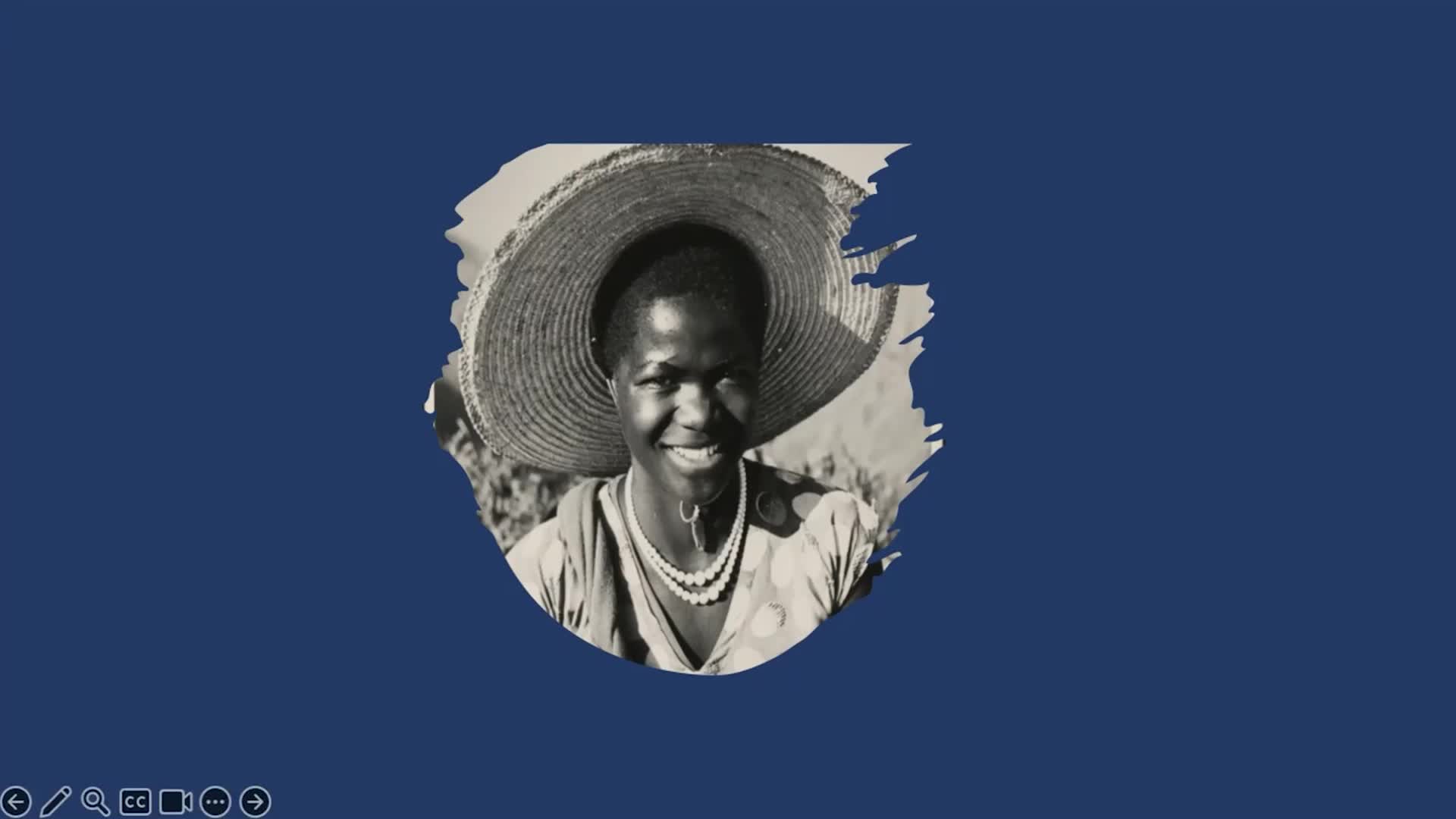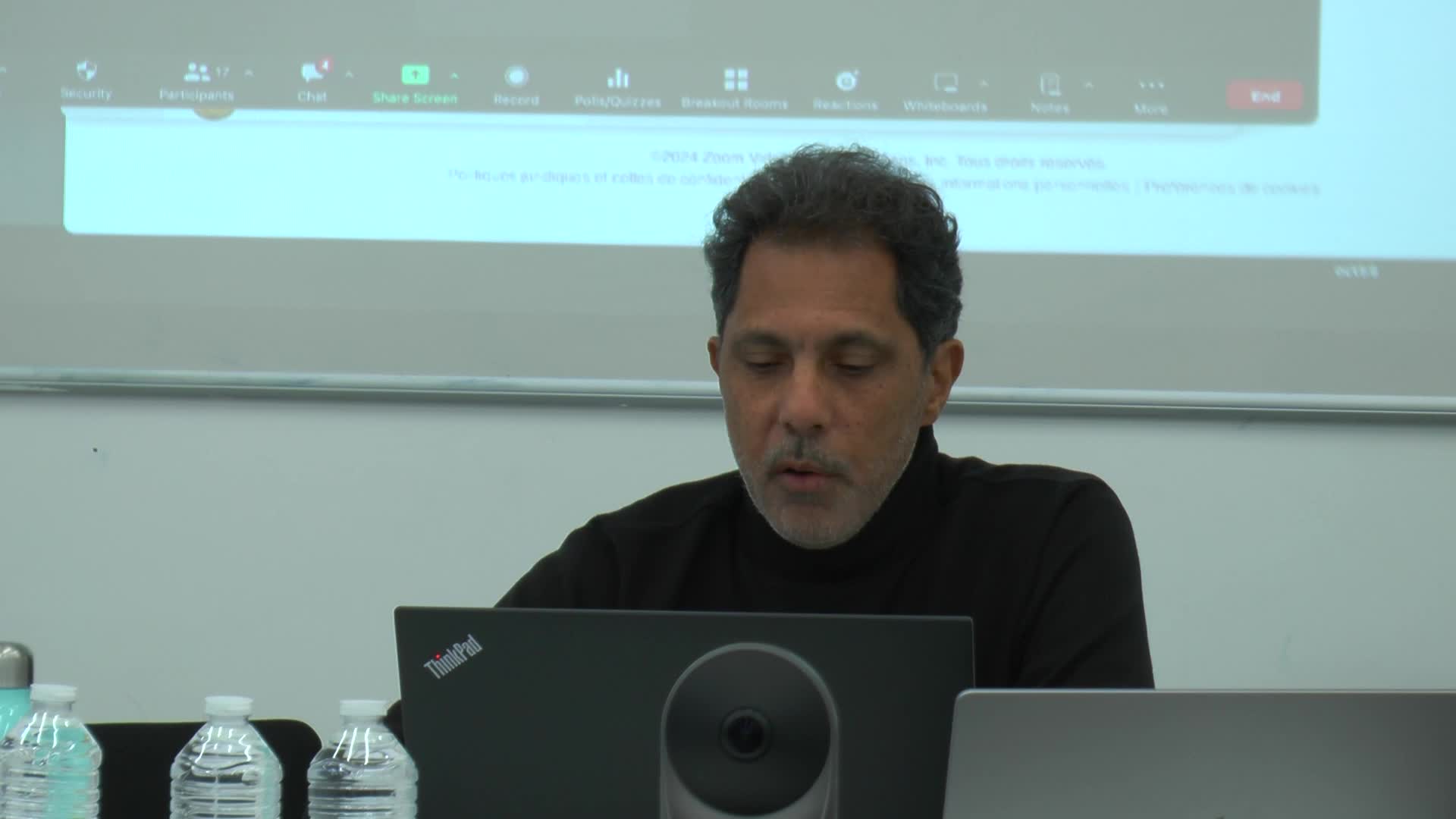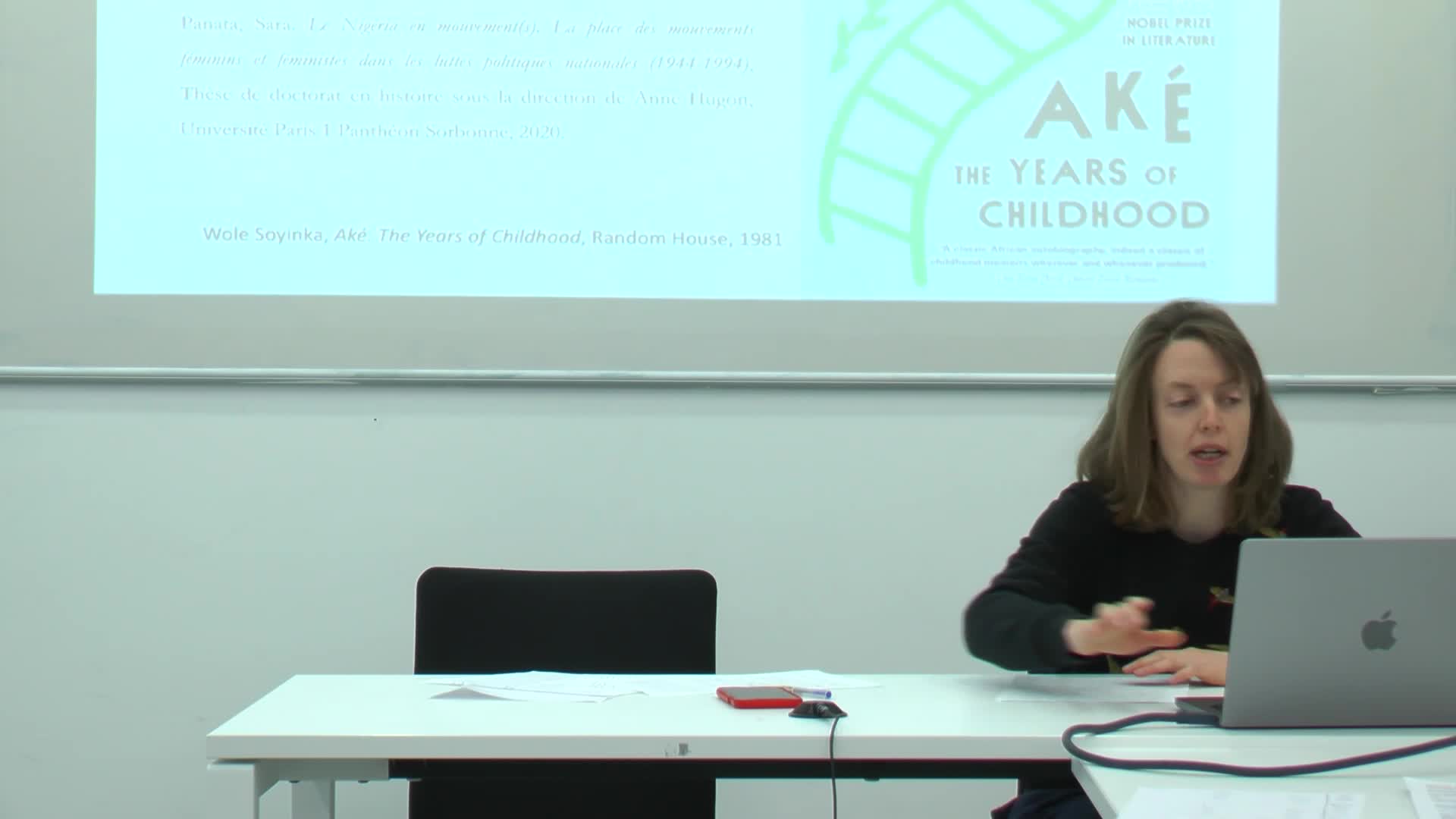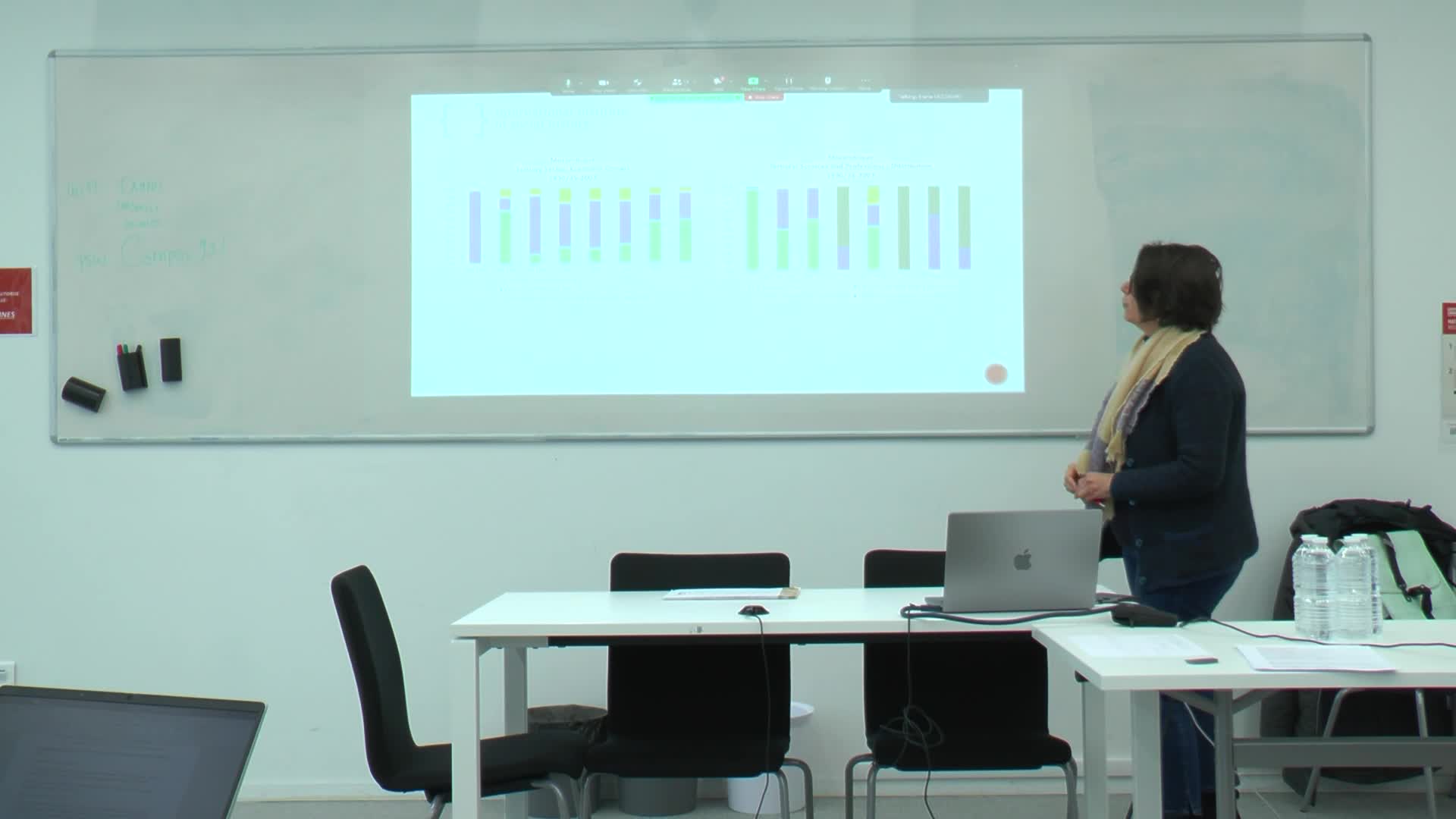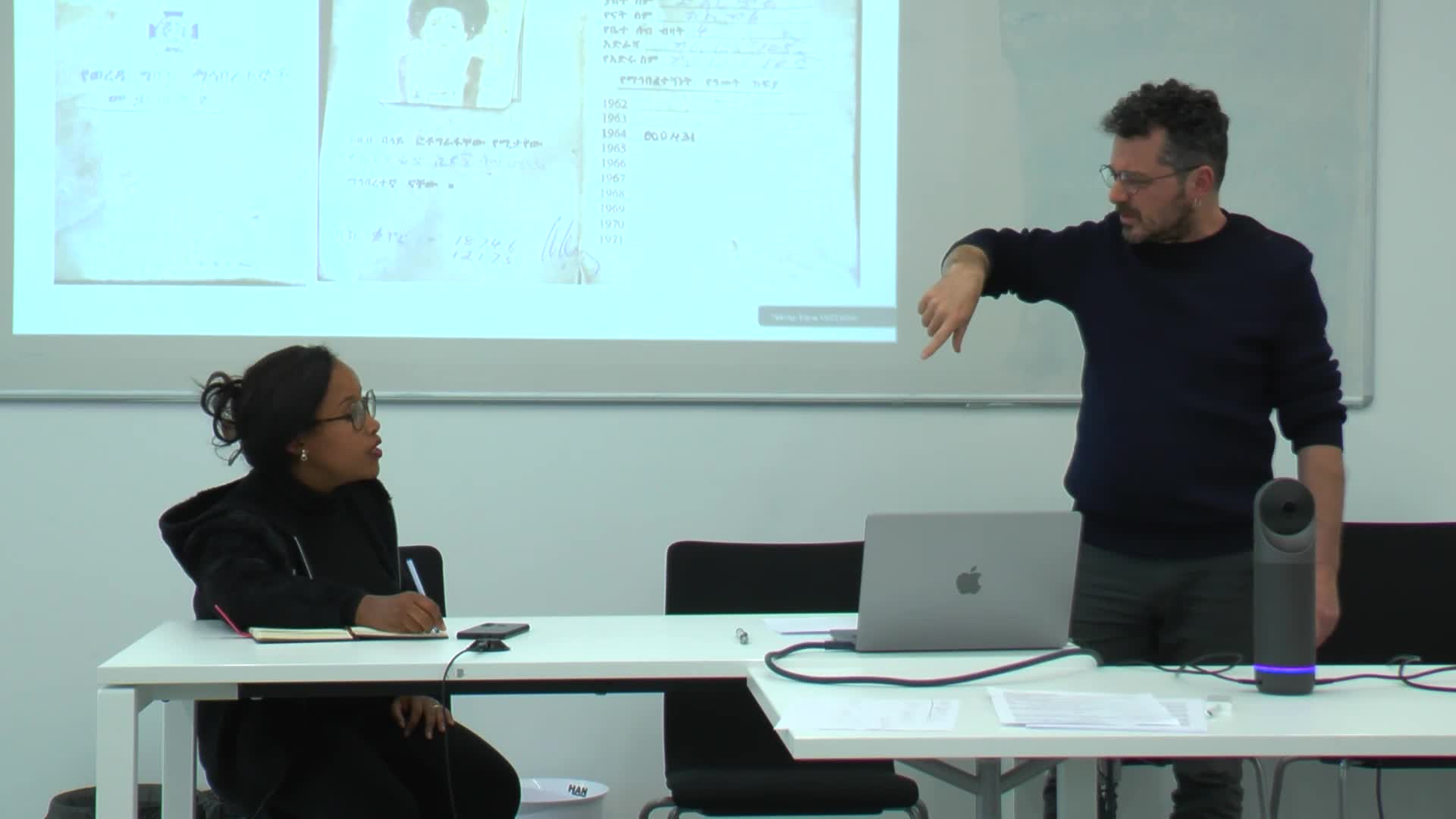Notice
Creative Methodologies - Writing the stories of working women from popular classes in African urban milieux, 1920 - 1970 - Partie 2
- document 1 document 2 document 3
- niveau 1 niveau 2 niveau 3
Descriptif
Creative Methodologies - Writing the stories of working women from popular classes in African urban milieux, 1920 — 1970 = Écrire les histoires de femmes travailleuses issues des classes populaires dans les milieux urbains africains, 1920 — 1970 - Partie 2
Danielle van den Heuvel, D.W.A.G. University of Amsterdam
What Can the Early Modern do for You? Uncovering Ephemeral Activities on Everyday City Life using the Snapshot Method
This talk centres on the snapshot method developed by the research group The Freedom of the Streets to capture everyday activities in the streets of urban Eurasia in the premodern period. Faced with the challenge to collect and analyse evidence on early modern street life, the project drew on social, spatial and visual history methodologies to develop a new approach to the study of gendered spatial relations. It foregrounds incidental evidence drawn from highly diverse materials including witness depositions, diaries, prints and sketches enabling a comparative history of the gendering of space the cities of Amsterdam, Edo/Tokyo and Batavia/Jakarta.
Darren Newbury, University of Brighton
Historical Photographs and Photographic Histories: Methodological Reflections on Research in Photographic Archives of Africa
Based on research in a range of photographic archives of Africa, those located on the continent as well as elsewhere, this presentation will reflect on methodological approaches to photographs as objects of research. In recent decades, the photographic image has become an important focus of attention for researchers outside of specialist studies of the medium, including across anthropology and social and cultural history. Moving beyond the treatment of photographs as objective historical documents or simple illustrations of events, this has led to a rich methodological debate around the photographic image. It has even been proposed that photography has changed the practice of history. The presentation will explore research strategies that have been brought to photographs, as images, as historical sources, and as relational objects, reflecting on the agency they embody, their enduring presence, their mobilities, and the ways in which they can be re-activated in the present. It is argued that any engagement with photographs as history needs to understand the complex forms of production and circulation that underpin their existence and availability. To illustrate the discussion, the presentation will use photographs drawn primarily from two archival collections. The first, a collection of photographs by an individual photographer who worked in and around Cape Town in the late 1940s and early 1950s. The second, the substantial archive of the United States Information Agency (USIA), the public diplomacy arm of the US government, specifically photographs that formed part of the agency’s engagement with Africa in the 1950s and 1960s.
Intervention / Responsable scientifique
Thème
Documentation
Dans la même collection
-
Creative Methodologies - Writing the stories of working women from popular classes in African urban…
NyantoSalvatory S.SimbaAlmaWorku KebedeDanielTiwaah Adu BohaenJulietÉcrire les histoires de femmes travailleuses issues des classes populaires dans les milieux urbains africains, 1920 - 1970 - Partie 4
-
Creative Methodologies - Writing the stories of working women from popular classes in African urban…
NieftagodienNoorDarkwahAkosua K.Écrire les histoires de femmes travailleuses issues des classes populaires dans les milieux urbains africains, 1920 - 1970 - Partie 1
-
Creative Methodologies - Writing the stories of working women from popular classes in African urban…
HunterEmmaBerthoElaraSharkeyHeather JaneSharifMariamÉcrire les histoires de femmes travailleuses issues des classes populaires dans les milieux urbains africains, 1920 - 1970 - Partie 5
-
Creative Methodologies - Writing the stories of working women from popular classes in African urban…
Meier zu SelhausenFelixSilvaFilipa Ribeiro daGibbsTimothyCristofaroDomenicoÉcrire les histoires de femmes travailleuses issues des classes populaires dans les milieux urbains africains, 1920 - 1970 - Partie 3
-
Creative Methodologies - Writing the stories of working women from popular classes in African urban…
HugonAnneSahledengilTirsitGuidiPierreVezzadiniElenaÉcrire les histoires de femmes travailleuses issues des classes populaires dans les milieux urbains africains, 1920 - 1970 - Partie 6


